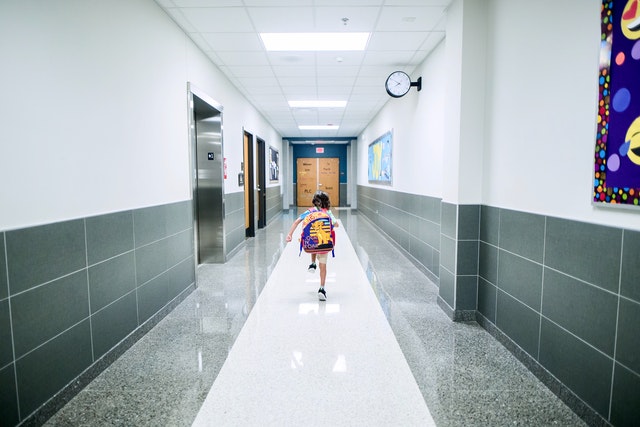North Carolina -- June 2, 2022: The North Carolina Senate passed a bill banning the teaching of gender identity and sexuality in K-3 classrooms on June 1, the first day of Pride Month.
The bill, dubbed the "Parents' Bill of Rights," was submitted in the Senate last week and passed on a party-line vote of 28-18 on Wednesday.
The law would require parents to be told if their child changes pronouns or names at school, in addition to prohibiting the inclusion of gender identity and sexual orientation in K-3 curricula. The bill also states that parents have access to their child's educational and health-care data at school, unless there is a genuine risk of abuse or neglect if the information is disclosed.
Edication policy director for Equality NC, an LGBTQ+ advocacy and lobbying group, Rebby Ker, spoke at a news conferenct at the legisltare prior to the vote. “(LGBTQ+ students) are often faced with a challenge at home because, unfortunately, not every child has access to a safe and supportive home environment,” Kern said. “School is home. School is safe, where they’re asked to be creative, imaginative, and innovative. So why would we create our school environments to be a place of surveillance and harm and rejection? Our schools are no place for fear.”
“Our North Carolina Professional Teaching Standards state that it is our duty to establish an environment that is respectful, supportive, and inclusive,” N.C. Association of Educators President Tamika Walker Kelly said at Wednesday’s news conference. “Our North Carolina code of ethics for teachers outline our commitments to North Carolina students, including their rights to safety.”
Kendra Johnson, executive director of Equality NC said “My only conclusion is that it’s much easier to tear down systems than to fix them,” And it is much easier to solve a manufactured problem than to solve a real one.”
During the floor debate, Sen. Michael Garrett, D-Guilford, called the bill “HB 2: School edition,” referencing the controversial 2016 law that prevented transgender individuals from using the public bathroom that aligns with their gender identity.
“Everyone agrees parents should be involved in their children’s education,” he said. “However, I think this bill fails to live up to its promise in so many ways.”
“If it comes up in a classroom, it can be discussed. If you’re doing family trees and someone has two moms or two dads, it can be discussed,” he said. “But it can’t be embedded in the curriculum. It’s not something we teach 5,6,7, and 8 year olds.”
“The school is a tool,” he said. “The state constitution of North Carolina provides that it is a requirement and a right, that it is a tool I can use. It doesn’t take my responsibility.”
State Superintendent Catherine Truitt released a statement Wednesday supporting the legislation.
In its report, GLSEN found that North Carolina school leaders and policymakers need to take steps to address the high percentages of LGBTQ+ students who experience harassment and struggle to get access to resources.
Their recommendations were to:
Implement supportive and inclusive school policies, “such as comprehensive anti-bullying/harassment and supportive transgender and nonbinary student policies.”
Support affirming student organizations, like Gay-Straight Alliances.
Provide professional development for school staff on LGBTQ+ student issues.
Provide student access to inclusive curricular resources.
Kern also said schools and educators can take steps to support LGBTQ+ students.
“We encourage educators to continue welcoming conversations in the classroom to help ensure that students are able to share about their families and share about who they are,” they said. “And we continue to invite educators to build safe and supportive conversations with families and encourage parent-family involvement at schools. And we also hope that educators and school administrators can continue thinking about ways to make schools safer at a policy level working with school boards, and to ensure that LGBTQ students are fully protected across students.”
According to surveys, LGBTQ+ students suffer prejudice and mental health difficulties in the classroom.
According to a 2019 survey by GLSEN, an organization that does research and advocates for LGBTQ+ kids, about a quarter of NC LGBTQ+ students and half of transgender students were denied the right to use their preferred name or pronouns at school.
According to the Trevor Project's 2022 National Climate Survey, 45 percent of LGBTQ+ teenagers seriously considered suicide in the previous year.
The bill goes to the House. If it passes, Democratic Gov. Roy Cooper probably will veto it, and legislative Republicans don’t have the numbers to override it.


 How to resolve AdBlock issue?
How to resolve AdBlock issue? 